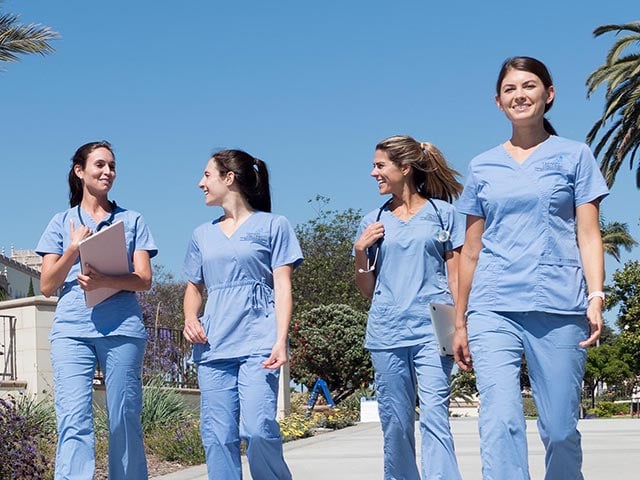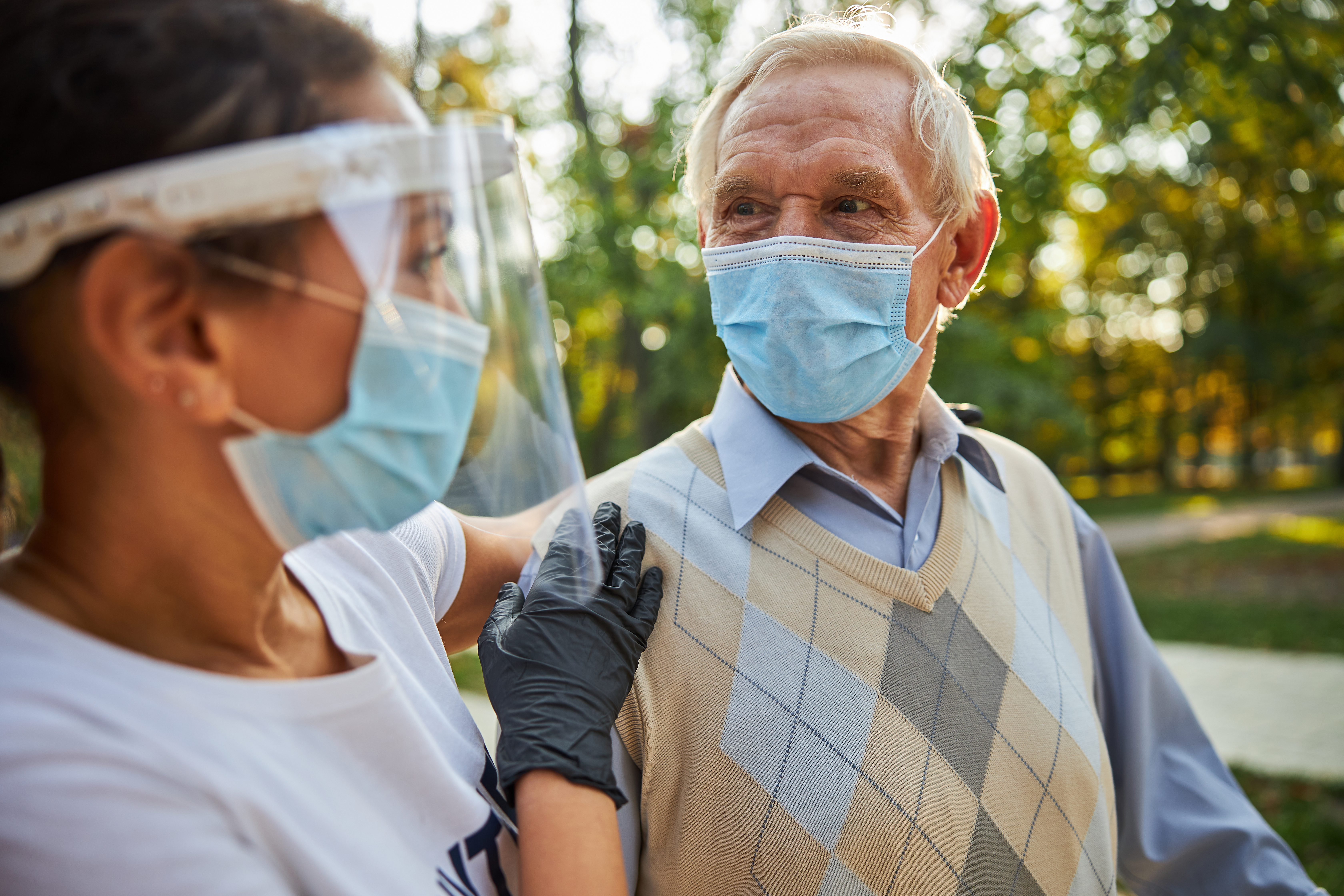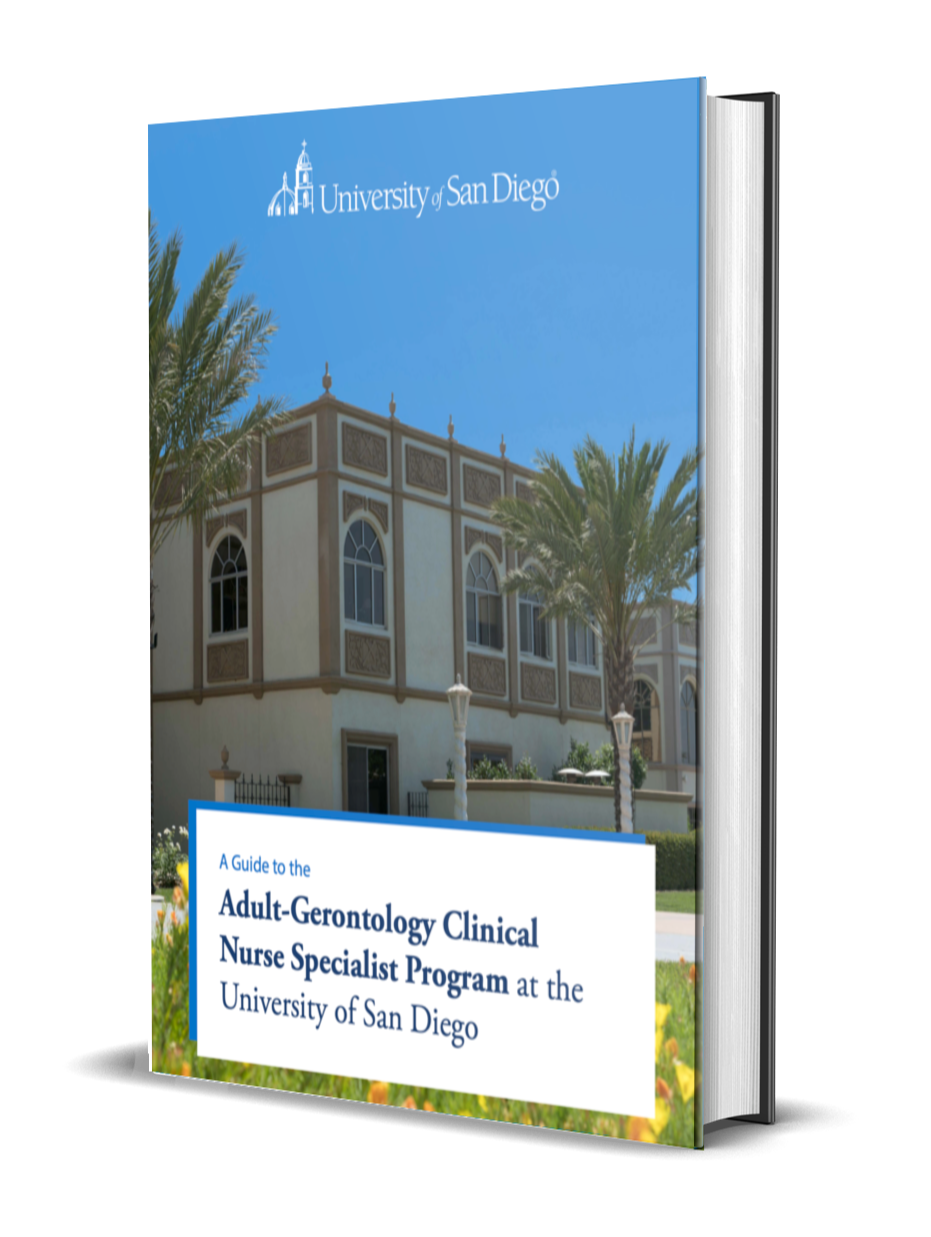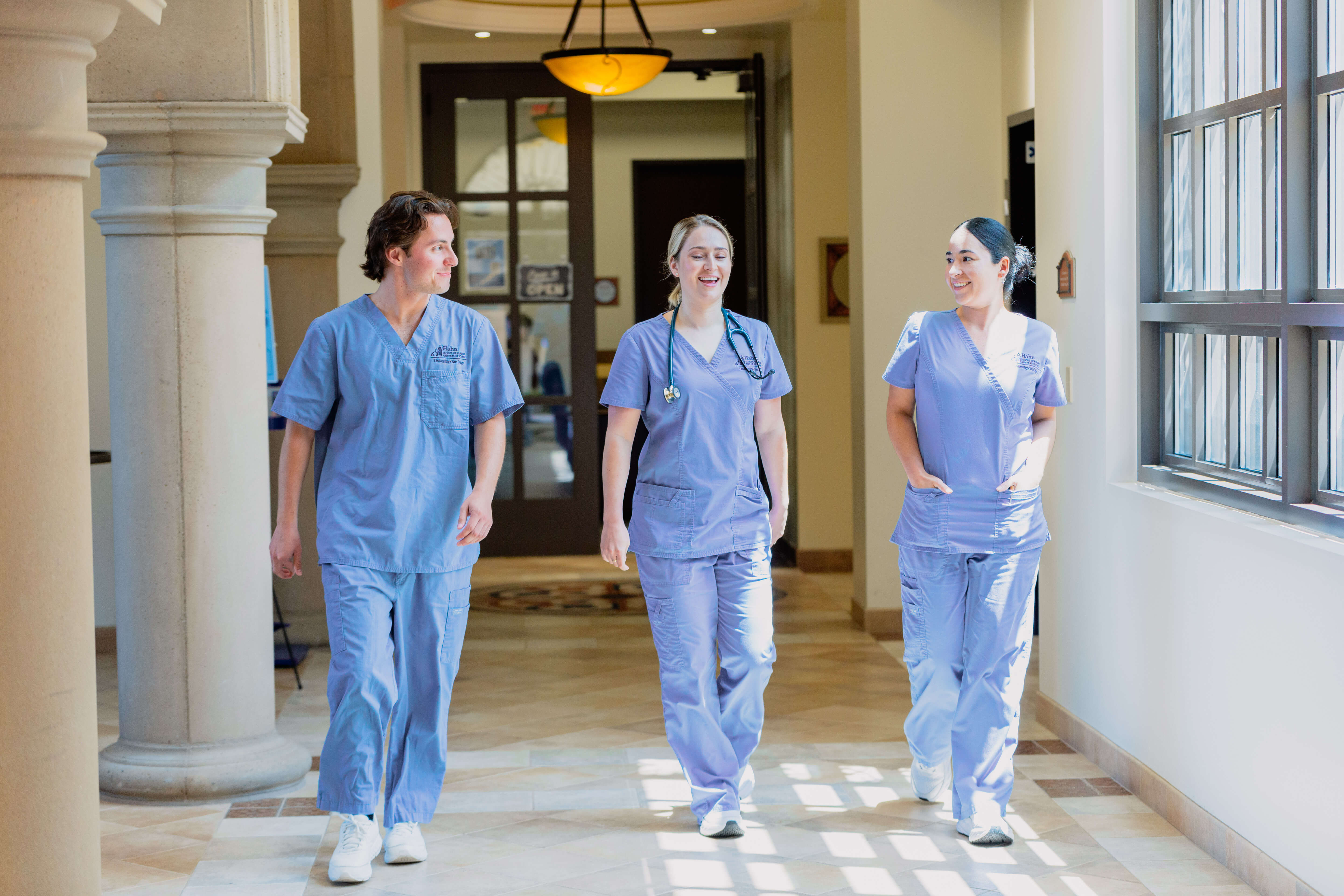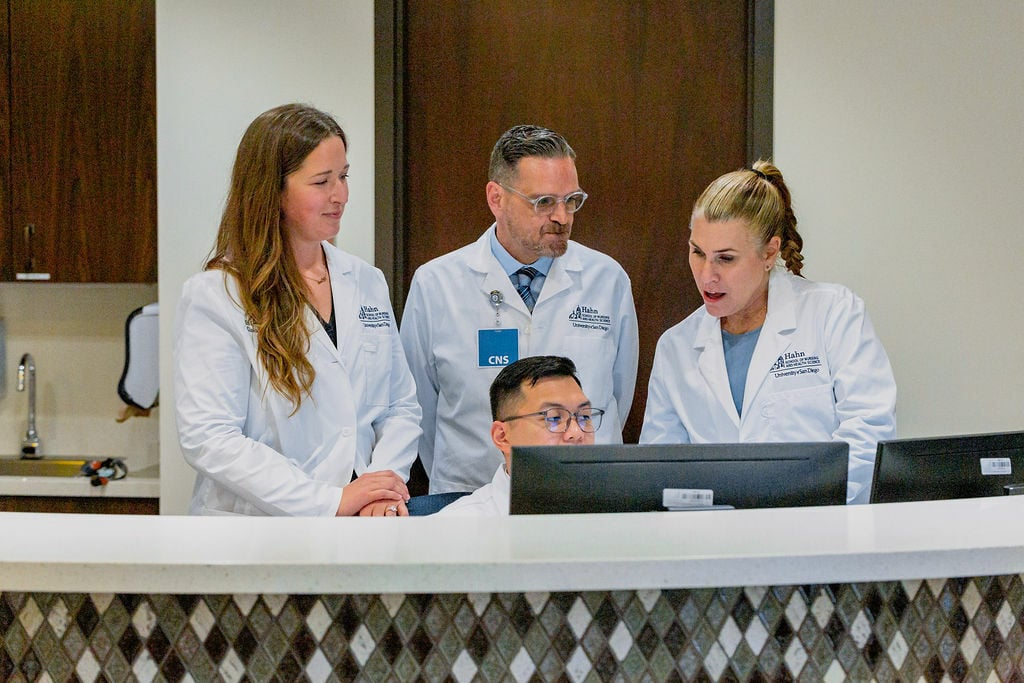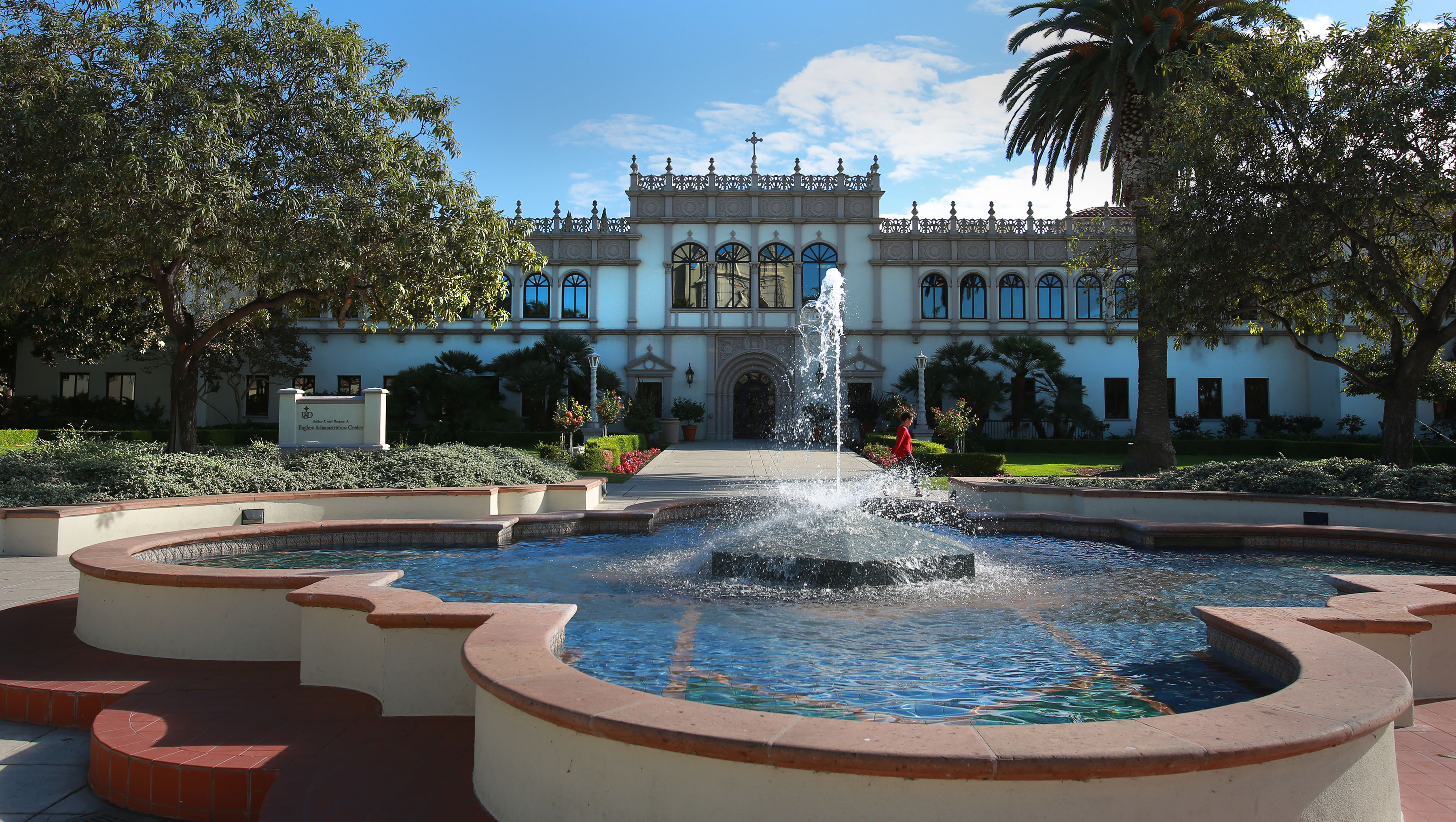
Discover the Benefits of a Nursing Degree From USD
The information in this blog post is for informational purposes only and is not intended to replace medical, financial, or professional advice.
In recent years, there has been an increased focus on population health in the field of healthcare. And as a result, a greater need for community/public health nursing.
This shift towards a more holistic approach to care reflects the growing recognition that health is not simply determined by individual factors like genetics and lifestyle choices. It is also heavily influenced by the economic, social, and environmental conditions that people live in, also known as the social determinants of health (SDOH).
Community/public health nursing is at the forefront of this movement, working to understand and improve these broader determinants of health for the populations they serve.
Public Health Nursing Vs. Community Health Nursing
While the terms public health nursing and community health nursing are sometimes used interchangeably, there are significant distinctions between the two.
Public health nursing focuses on the promotion of health and prevention of disease at the population level, while community health nursing is concerned with the health of individuals and families within a community.
Global health is an umbrella term that includes both public health and community health, as well as other issues related to the health of populations around the world. Public health is concerned with how individuals interact with one another and the wider society, while community health emphasizes environmental factors like clean air and water, housing conditions, and education levels.
There is a strong emphasis on understanding how disparities in access to healthcare play out around the world and which groups are most affected by these inequalities. Ultimately, improving global health requires tackling social issues like racism that can negatively impact physical and mental wellbeing at every level. By understanding the differences between public, community, and global health, we can develop more effective solutions for addressing disparities within our society as well as globally.
The demand for public health and community health nurses is expected to increase 17% between 2020 and 2030, quickly outpacing the average rate of growth for all other occupations.
What Is Public Health Nursing?
The American Public Health Association (APHA), defines public health nursing as “the practice of promoting and protecting the health of populations using knowledge from nursing, social, and public health sciences.”
What Does A Public Health Nurse Do?
A public health nurse (PHN) works to address various issues related to disease, illness, and injury prevention as well as health maintenance and health promotion. They do this by educating the public, engaging in policy reform, advocating for system-level changes, and targeting health promotion efforts aimed at improving the overall health of specific populations.
PHNs bring about system-level changes by looking at problems from a broad perspective and considering the entire system, rather than just its individual parts. For public health efforts, systems thinking can help to improve coordination between different agencies and reduce duplication of effort. It can also help to identify gaps in care and target resources more effectively. In addition, by understanding how different factors interact with each other, PHNs use a systems approach to develop more targeted and effective health interventions.
PHNs work across many different settings, primarily in government roles in local and/or state health departments as well as correctional facilities or worksites. Whether working directly with individuals or ensuring that systems are in place to support healthy communities at large, PHNs have a critical role to play in promoting and maintaining the health of specific populations.
What Is Community Health Nursing?
Community health nursing combines aspects of public health and direct care to serve a group of patients who may lack access to — or may not have the financial means — to obtain health care. Community health nurses work directly with individuals, families, groups, and communities to improve their health status.
What Does A Community Health Nurse Do?
A community health nurse (CHN) is a public health professional who works to promote the health of individuals, families, and communities. CHNs provide direct patient care, as well as outreach and education. They also develop and implement intervention plans that address a variety of health concerns, including illness and disease prevention, nutrition, and wellness.
CHNs typically work within the community, through public entities such as school districts, community clinics, or community health centers. This allows them to reach a wide range of people and provides a unique opportunity to make a positive impact on the health of their community. In addition to their direct patient care responsibilities, CHNs also play an important role in educating patients, families, and communities about how to improve their overall health and wellbeing.
The Role Of Nurses In Healthcare Reform
The role of PHNs and CHNs in healthcare reform has always been vital but is even more so today. These professionals work on the front lines of healthcare, providing essential services that support patient well-being as well as overall community health. They provide direct care to individuals, families, and communities through a wide range of programs, such as immunization clinics for children, outreach programs for seniors, and home visits for new mothers.
Beyond their direct patient care duties, PHNs and CHNs play a crucial role in shaping the landscape of healthcare policy. Their expertise provides meaningful guidance at all stages of legislative efforts, from developing public policies to encouraging implementation and continuation of The Patient Protection and Affordable Care Act (ACA). They are also central to initiatives designed to address pressing issues like the rural healthcare shortage and disparities in access to quality healthcare experienced by vulnerable populations. Their unique perspective and commitment to equitable access to care make a significant difference for the people they serve.
How To Become A Public Health Nurse Or A Community Health Nurse
Becoming a public health nurse (PHN) or community health nurse (CHN) requires obtaining a Bachelor of Science in Nursing (BSN). An MSN or DNP degree is not required but is highly recommended., however , gGraduate education prepares PHNs and CHNs with more advanced knowledge and skills required to expertly navigate today’s complex public and community health environments.
Depending on your career focus, the Hahn School of Nursing and Health Science offers three MSN tracks: Adult-Gerontology Clinical Nurse Specialist, Executive Nurse Leader, and Nursing Informatics. Students also have the option to pursue a dual-track MSN: Adult-Gerontology Clinical Nurse Specialist/Executive Nurse Leader. All tracks share a common core of knowledge and prepare nurses to perform as expert clinicians and leaders in the public health and community health systems.
For those who wish to achieve the highest level of proficiency as a nurse clinician and those who want to incorporate research into the care of specific populations or play a key role in public health reform, we offer multiple paths to our pinnacle DNP.
To learn how our MSN programs prepare nurses to be astute nursing leaders and highly sought-after clinicians, capable of meeting the unique challenges of public health and community health nursing in our increasingly complex healthcare system, be sure to see A Guide to Achieving the Master of Science in Nursing at USD.
The information provided by USD’s Hahn School of Nursing and Health Science is for informational purposes only and is not intended to replace professional medical or financial advice. This includes, but is not limited to, blog posts, eBooks, webinars, emails, graphics, social media posts, and other content. Always seek the guidance of your physician or a qualified medical or financial professional.
A Guide to the University of San Diego's Adult-Gerontology Clinical Nurse Specialist Program
The University of San Diego's nursing program ranks among the best in the nation. But that's not the only reason future students walk through our doors to pursue one of our graduate degrees. Download our guide for an in-depth look at the Adult-Gerontology Clinical Nurse Specialist program and learn how our rich heritage of excellence in nursing education can help you achieve your academic and professional goals.
GET THE GUIDE
